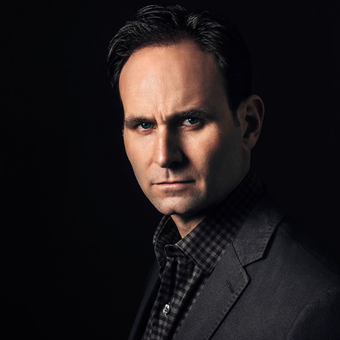FOX Corporation partners with ‘Make Camo Your Cause’ campaign
‘FOX & Friends’ co-hosts discuss supporting veterans with FOX News-branded camo gear.
Audie Murphy was born on this day, June 20, in 1925.
There is sometimes confusion over his year of birth — as he falsified a birth certificate to join the Army following the attack on Pearl Harbor.
He entered the military as a private at age 17 and rose to the rank of staff sergeant before earning a battlefield commission.
He was wounded three times, fighting in nine major campaigns in the Mediterranean and European Theaters of War.
He would become the most decorated soldier of World War II, receiving the Medal of Honor for his actions at the Battle of Colmar Pocket, Holtzwihr, France.
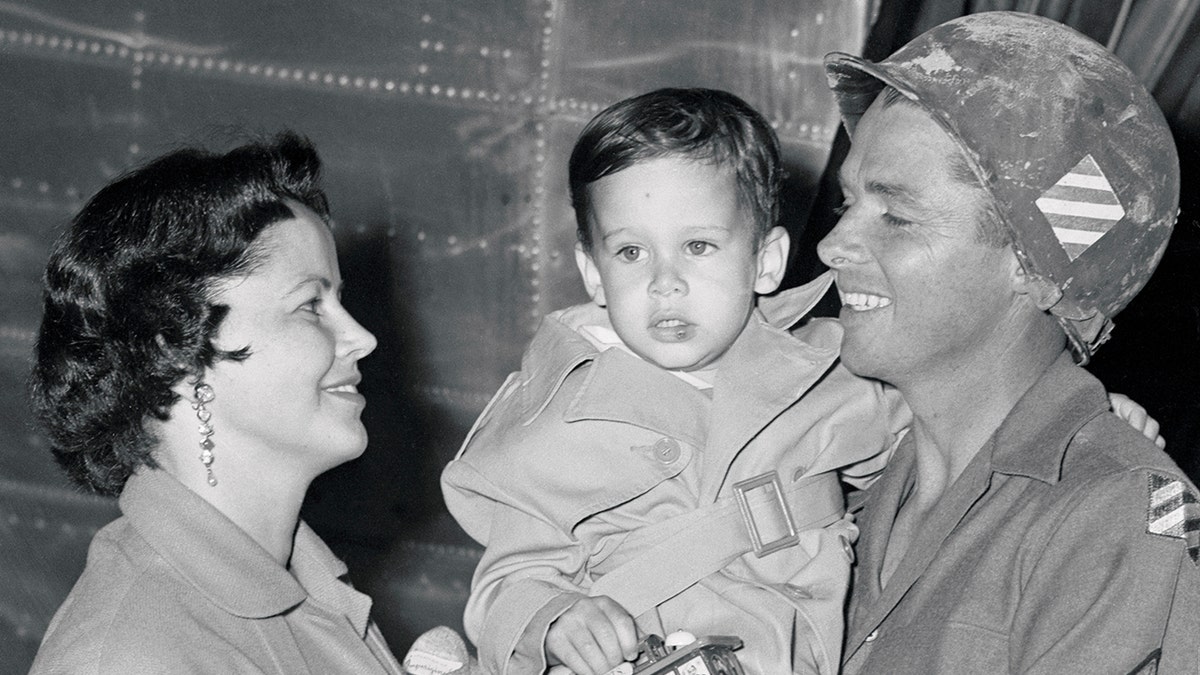
It's not every boy who could watch his hero father relive his daring war exploits, as son Terry Michael Murphy, just 2½ years old in this photo, did while his dad, Audie Murphy, filmed "To Hell and Back," the 1955 film dramatization of his bestselling autobiography. Wife Pamela Murphy brought the child out to Yakima, where the actor and "most decorated G.I. of World War II" was at work. The pair also had another son, James Shannon. (Getty Images)
After the war, he wrote the bestselling book "To Hell and Back" — and starred in 44 movies.
The 1955 movie adaptation of his autobiography was Universal’s highest grossing film until 1975.
JACK CARR'S TAKE ON TERRORISM IN THE SKIES ON JUNE 14, 1985: CREW WAS ‘NOTHING SHORT OF HEROIC’
He was one of the first to bring attention to what is now known as post-traumatic stress, focusing his efforts on assisting Korean War and Vietnam War veterans.
He was killed in a plane crash in 1971.
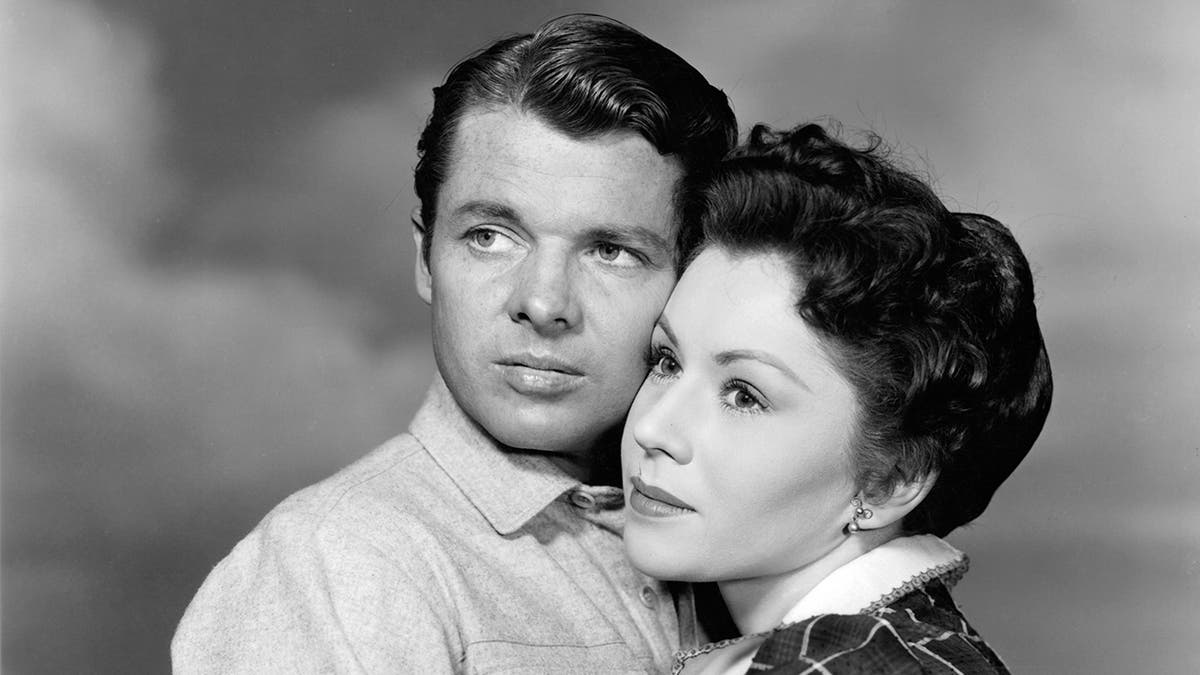
Audie Murphy holds Anne Bancroft in a publicity portrait for the film "Walk The Proud Land," 1956. Murphy is buried in Section 46 of Arlington National Cemetery in Arlington, Virginia. (Universal/Getty Images)
Audie Murphy was just 45 when he died.
He is buried in Section 46 of Arlington National Cemetery in Arlington, Virginia.
In part, his Medal of Honor citation reads: "With the enemy tanks abreast of his position, 2d Lt. Murphy climbed on the burning tank destroyer, which was in danger of blowing up at any moment, and employed its .50 caliber machine gun against the enemy."
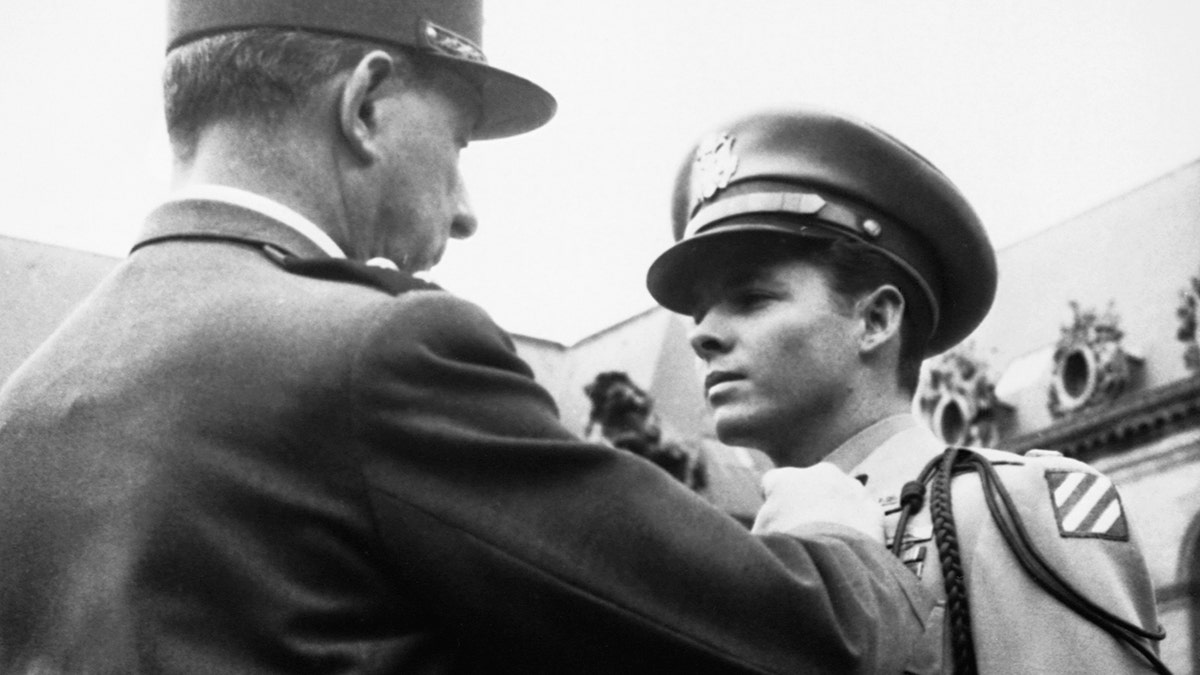
France honors American soldier Audie Murphy with the Legion d'Honneur. Murphy was the most decorated American soldier in World War II. (© CORBIS/Corbis via Getty Images)
It goes on, "He was alone and exposed to German fire from three sides, but his deadly fire killed dozens of Germans and caused their infantry attack to waver. The enemy tanks, losing infantry support, began to fall back."
"He continued to hold his position and wiped out a squad, which was trying to creep up unnoticed on his right flank."
The citation continues, "For an hour the Germans tried every available weapon to eliminate 2d Lt. Murphy, but he continued to hold his position and wiped out a squad, which was trying to creep up unnoticed on his right flank."
It adds, ""Germans reached as close as 10 yards, only to be mowed down by his fire. He received a leg wound, but ignored it and continued the single-handed fight until his ammunition was exhausted."
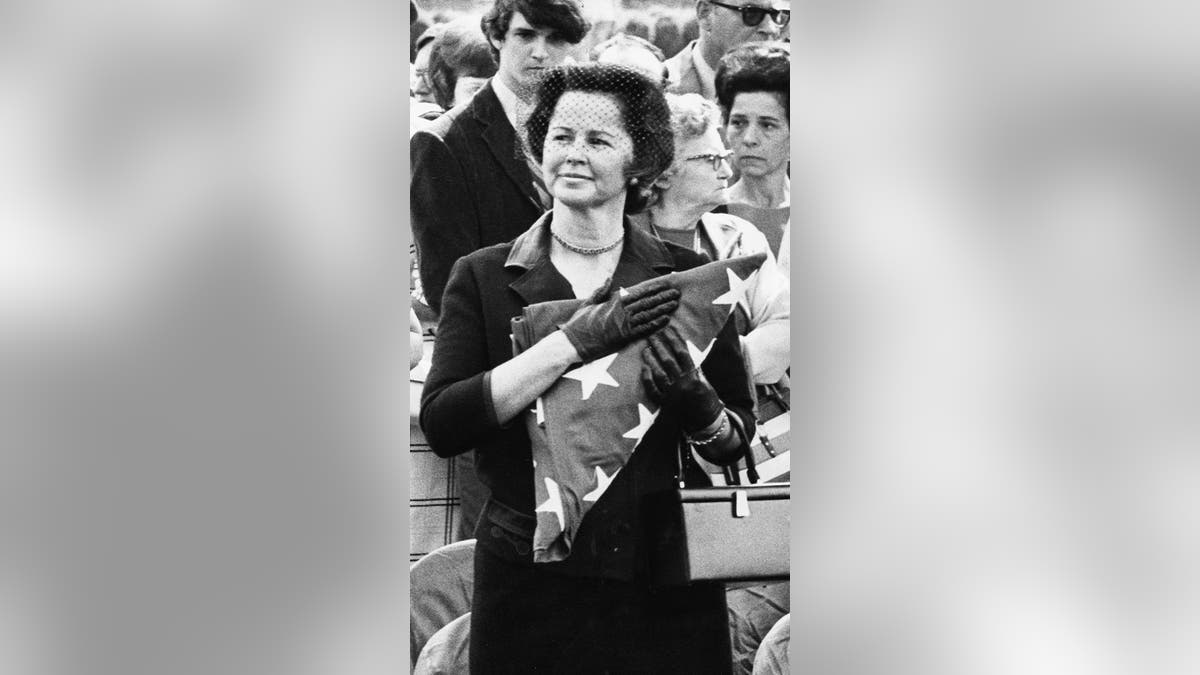
Pamela Archer, the wife of actor and war hero Audie Murphy, is shown holding the folded American flag to her chest as she attended her husband's funeral at Arlington National Cemetery in Virginia, on June 9, 1971. (Keystone/Hulton Archive/Getty Images)
After the war, Murphy was asked what had motivated him to take those heroic actions that day.
He replied simply, "They were killing my friends."
(Follow Jack Carr on Instagram at https://www.instagram.com/jackcarrusa.)
More on Audie Murphy
He was born on a sharecropper farm in north Texas, according to the Association for the U.S. Army.
As a boy, he chopped cotton for $1 a day.
He was noted for his feats of courage — and for his accuracy with a gun.
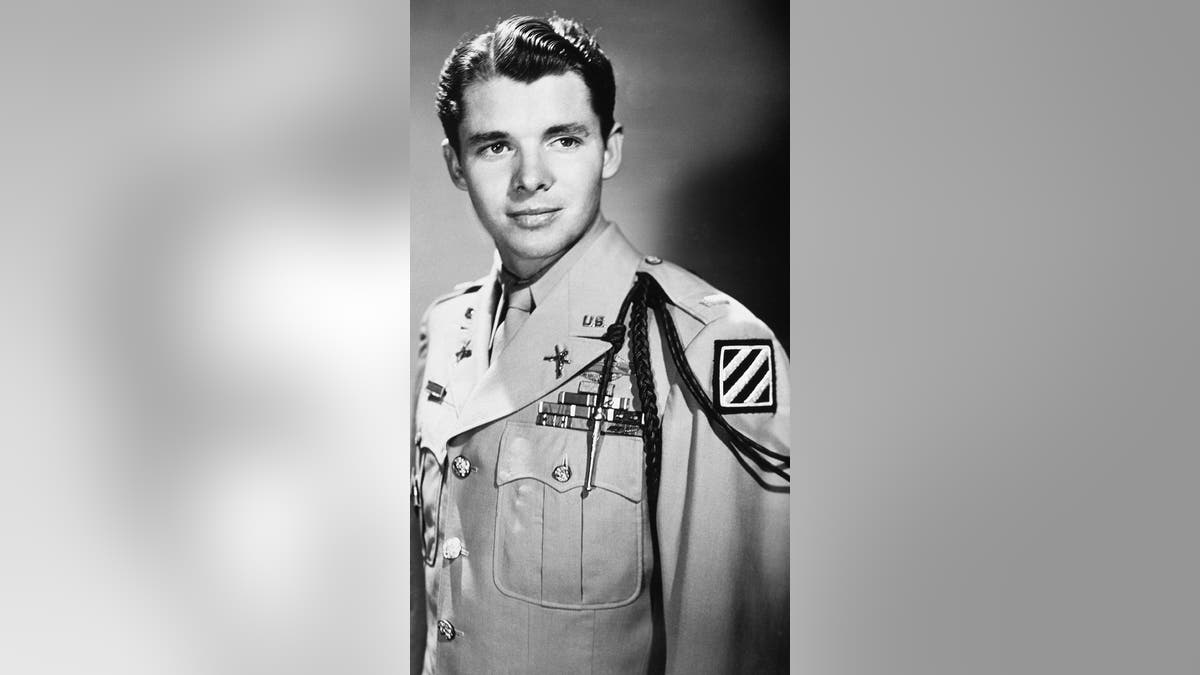
Lieutenant Audie Murphy, the most decorated United States soldier of World War II, circa 1945. Murphy went on to become an actor and songwriter. (Pictorial Parade/Archive Photos/Getty Images)
He had only five years of schooling.
He was orphaned at age 16.
During World War II, he killed hundreds of Germans in combat, according to Encyclopedia Britannica.
In 1945, Murphy received the Congressional Medal of Honor.
CLICK HERE TO SIGN UP FOR OUR LIFESTYLE NEWSLETTER
He also received every military combat award for valor available from the United States Army, as well as French and Belgian awards for heroism.
When he was buried in 1971, he received full military honors at Arlington National Cemetery.
CLICK HERE TO GET THE FOX NEWS APP
His gravesite is near the amphitheater — and is one of the most visited gravesites in Arlington.








































